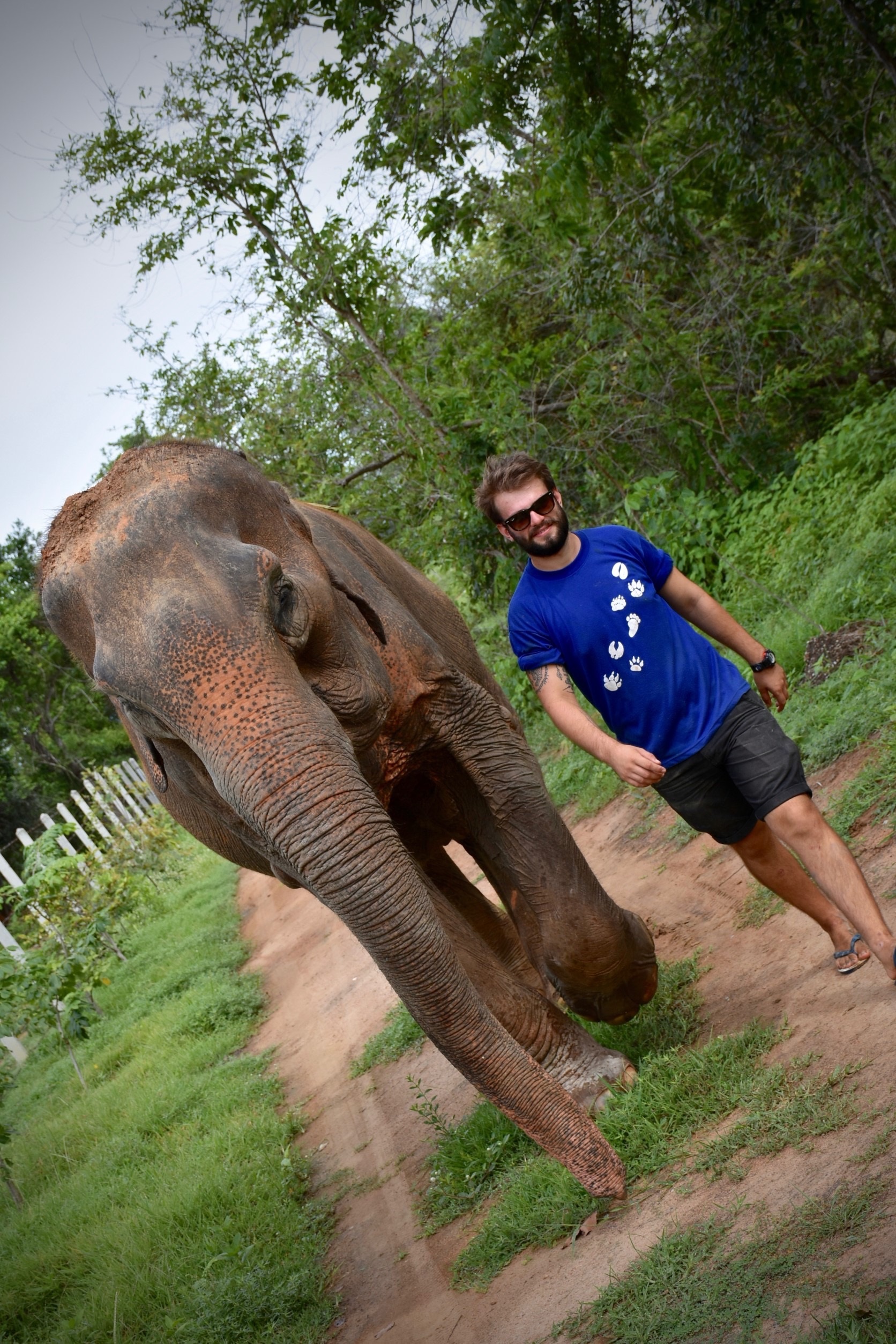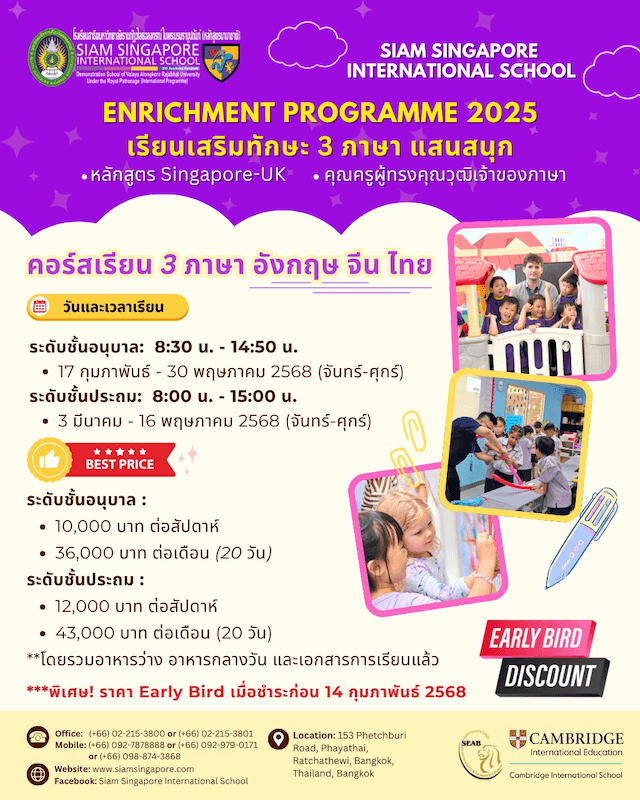Your Name: Dave Braker
Job Title: Elephant Coordinator at Wildlife Friends Foundation Thailand (WFFT)
What is your nationality and background?
I was born and raised in the UK and graduated university with the aim of joining the British Royal Marines as an officer. After being offered my current role at WFFT (having been a long-term, returning volunteer) I cancelled my application for the Marines and have been working in wildlife conservation ever since.
What is your profession?
As the Elephant Coordinator, I manage the day-to-day running of the WFFT Elephant Refuge, one of our main projects here in Thailand.
What are the key skills and responsibilities of this role?
Communication and organisation are absolutely necessary in this role. The Elephant Refuge cares for 18 elephants; to facilitate the care that they need we maintain a team of 12 elephant handlers and up to 35 volunteers – mostly farangs – at one time.
On one hand my role is to ensure the elephants receive the proper care and attention that they need, that they are in good health, receiving their proper diet and being exercised appropriately. I am also required to do the same for our volunteers – to ensure that all are happy with the work that they are doing here and well organised.
Since the volunteers extremely rarely speak Thai and the mahouts generally speak limited English, I function as a medium between the two daily.
How did you get involved in your profession?
I volunteered the first time with WFFT in 2013 for 2 weeks when I was still a student and absolutely loved it. I returned in 2015 to volunteer for 6 months with the elephants. About halfway through this time our last Elephant Coordinator resigned, and I was offered the role.
How does your role enhance the wellbeing or experience of children?
Frequently WFFT hosts groups of schoolchildren, particularly from international schools. WFFT as an organisation believes that education is a huge part of wildlife conservation, and I wholeheartedly agree. By educating Thai and foreign children of a range of ages, we are able to encourage them to aspire to help protect wildlife. It is important for them to understand that when a species goes extinct, it is permanent.
Also, it is really fun to visit WFFT and see these animals – from the gibbons, macaques, bears, crocodiles to the elephants (and many more), they are awesome.
What challenges do your face in this role?
Elephants are among the most intelligent animals on the planet – they love to play and be stimulated. Getting the mahouts and volunteers to create enrichments that keep all our elephants active is a constant challenge, but one that I am happy to take head-on. Weekly we build new toys and improvements in the elephant enclosures. Daily we provide enrichment as simple as guided walks with a bucket of fruit for incentive, up to complex challenges to encourage the elephants to work for their food.
What do you hope to achieve within your industry?
The use of elephants in logging was made illegal in 1989. The ban of begging elephants took force in 2008. It would be a dream to see all exploitation of elephants made illegal in Thailand, but this is likely decades away. I have however noticed that many tourists and backpackers in Asia are choosing to forego elephant rides. This is fantastic because without a demand the supply will disappear. Education about these issues is now snowballing and more people are opting for ecotourism. To be a part of this and to educate people – both Thai and farang, to encourage people to stop supporting the use of elephants for tourism is definitely a personal aim.
Who or what inspires you?
Definitely the elephants that I work with. Despite the abhorrent abuse that they have suffered not only in the logging industry, but especially in the tourist industry providing elephant rides they still have stubborn elephant spirit. I would not have believed how large and diverse their personalities are until I began working with them. Their strong characters and unending perseverance never fail to surprise me.
The volunteers I work with also inspire me – every Sunday we provide the new intake with a tour around the WFFT Wildlife Hospital, Wildlife Rescue Centre and Elephant Refuge, introducing them to the mix of animals we care for and the issues that they face. There are always volunteers who come here with a genuine passion for animal welfare and wildlife conservation.
Only a Bangkok local would know…
I do not live in Bangkok, though I can tell you that in Thailand mu kratha (หมูกระทะ) is some of the best food you will eat (even though it is technically a blend of Korean and Chinese cuisine).
For more information on Wildlife Friends Foundation Thailand, please visit their website.
Register your email address here and we’ll notify you when a new article gets uploaded.














